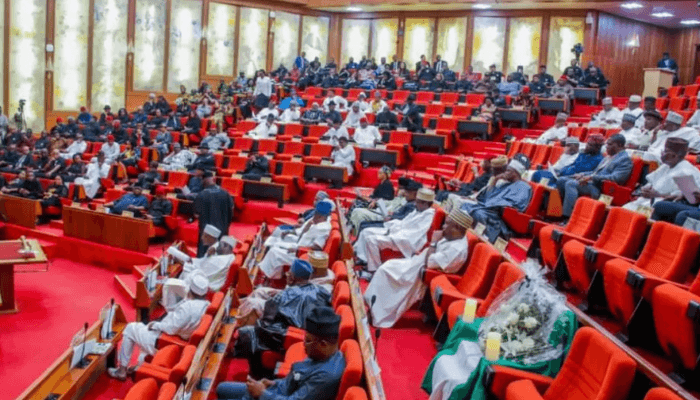The Nigerian Senate has warned that government agencies failing to provide proper records of their 2024 expenditures during scrutiny will face zero allocation in the 2025 budget.
This warning was issued by the Senate Committee on Finance during an investigative hearing on internally generated revenue, fiscal accountability, and Nigeria’s financial management system.

The hearing also reviewed preparations for the 2025 appropriation expected to be presented by President Bola Tinubu.
Chairman of the Committee, Senator Sani Musa (APC, Niger East), issued the warning after a session with the Accountant General of the Federation, Oluwatoyin Madein.
“This performance index exercise on the various MDAs is preparatory to the 2025 budget.
Any agency that fails to appear before this committee upon invitation risks zero allocation in the 2025 budget because records of how appropriations made for 2024 are expended must be provided with facts and figures,” Senator Musa declared.
The Accountant General had earlier presented a summary of federal government revenue up to September 2024, which included:
- Independent revenue of ₦2.7 trillion.
- Operating surplus from Government-Owned Enterprises (GOEs) of ₦2.3 trillion.
- Internally Generated Revenue (IGR) from Ministries, Departments, and Agencies (MDAs) of ₦344 billion.
However, the Committee noted significant gaps in the report, stating that it failed to capture the federal government’s overall financial activities comprehensively.
To address these discrepancies, the Committee resolved to invite key agencies, including the Revenue Mobilization Allocation and Fiscal Commission (RMAFC), the Nigerian Extractive Industries Transparency Initiative (NEITI), and the Nigerian National Petroleum Company Limited (NNPCL), for a joint session.
“This is not about hearing from one side and another separately. We need all stakeholders present at the same time to provide clarity and consistency in their reports,” Senator Musa added.
Other committee members expressed frustration over delays in releasing and utilizing capital budgets, blaming inefficiencies in the centralized payment system managed by the Accountant General’s office.
Lawmakers criticized the policy requiring over 700 MDAs to process payments through a single office, citing delays in project completion and diminished public trust.
They also raised concerns about reports of contractors paying a 5% under-the-table fee to expedite payments, describing it as a significant accountability issue.
The Accountant General defended the centralized payment system, stating it was designed to curb inefficiencies and prevent unutilized funds from being rolled over annually.
Additionally, she revealed that stamp duty revenues from 2020 to 2024 were disappointingly low, totaling ₦30.3 million compared to ₦301.49 million in internally generated revenue.
Lawmakers linked this shortfall to poor budget performance, noting that taxes are only collected when payments are made.
The Committee gave the Accountant General until Wednesday to provide all requested reports, ahead of a follow-up meeting scheduled for 2 p.m. the same day.
In the coming days, the Committee plans to summon other agencies, including the NNPCL and NEITI, to address discrepancies in their submissions and strengthen financial oversight.
Support InfoStride News' Credible Journalism: Only credible journalism can guarantee a fair, accountable and transparent society, including democracy and government. It involves a lot of efforts and money. We need your support. Click here to Donate
